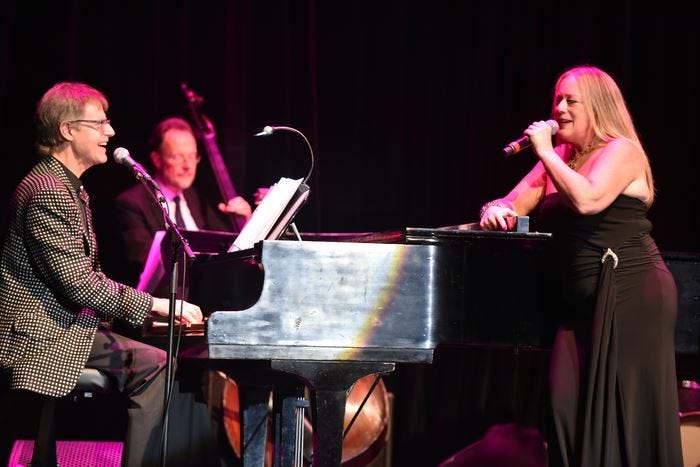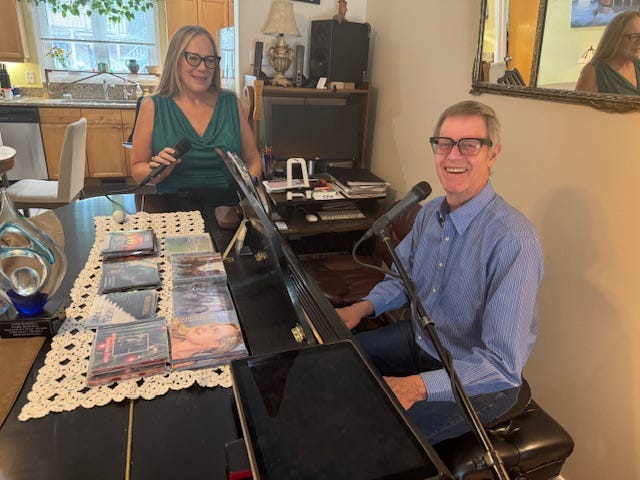
These days, Mark and Anne Burnell find new joy and gratitude in making music. That's because in April, Mark had cutting edge, brain surgery.
"Music is healing. It healed me," smiled Mark, as he sat down in front of his familiar piano that takes up most of their kitchen inside their Wicker Park home.
In 1974, Mark experienced a head injury in college after falling and hitting a manhole cover.
"I was in my second month in college as a freshman at Carnegie Melon. I ended up in a coma for a week,' he recalled. "I had double vision for a while but that went away and I kinda forgot it even happened as I felt fine for years."
More than 20 years later, he started having seizures.
"I witnessed his first seizure in the middle of the night," recalled his wife, Anne Burnell. "Doctors put him on seizure meds. Then four years later came the big hit when he had a Grand Mal." said Anne.
"That time, I was in the hospital for five weeks." said Mark. After multiple seizures for years, and a pair of near death experiences, he became drug-resistant to anti-seizure medication.
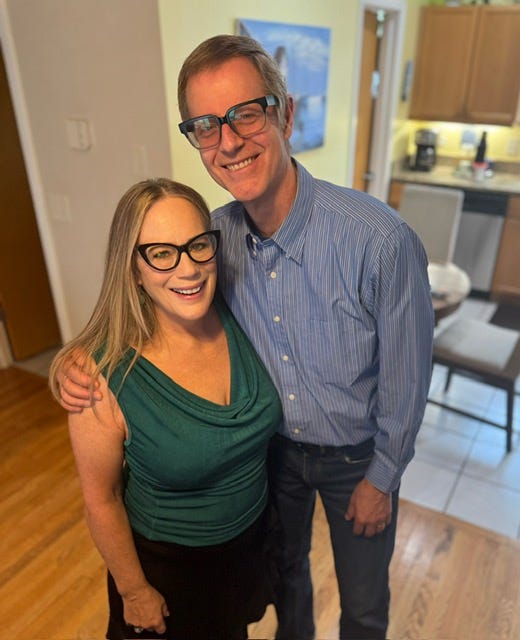
"A friend of ours, 'knew a guy' who did these kind of state-of-the-art brain surgeries. We were at a dead end. There was no solution. I was willing to try surgery because, why not?" Mark said.
On Easter Sunday, doctors at the Mayo Clinic in Jacksonville, Florida drilled 14 holes in his skull, and probed his brain with electrodes, all while he was awake and playing his keyboards.
"Doctors wrapped me up like Cone Head," he laughed. "They put 200 wires out of those holes into a computer. They told me it wouldn't hurt and it didn't. I didn't feel a thing. I bought a toy keyboard and they had me play and they said don't play an easy song, really challenge yourself." he recalled.
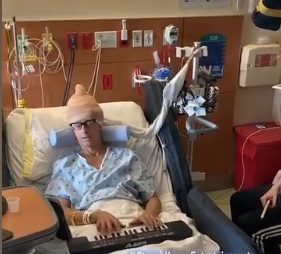
Two and a half hours later, through brain mapping, doctors destroyed the seizure -causing brain matter and preserved the healthy parts including the most important part to him--the part that allows him to create and play music.
"The first thing I thought after the surgery was: Can I still play?" Mark recalled.
"We did a two and a half hour concert, that was the practice surgery but then when they did the actual ablation, we did another two and a half hour concert. I was there singing along with him," said Anne. "He had to sing and play and harmonize with me. They asked me to look out for a wrong chord or a sour note, while they tested the tissue. I would raise my hand if he went sideways." said Anne.
"The first thing I did when I got home was sit at the piano. The love of my life is music so I wanted to make sure I was still able to sing and play." said Mark. He was, and practiced more than ever while he recovered.
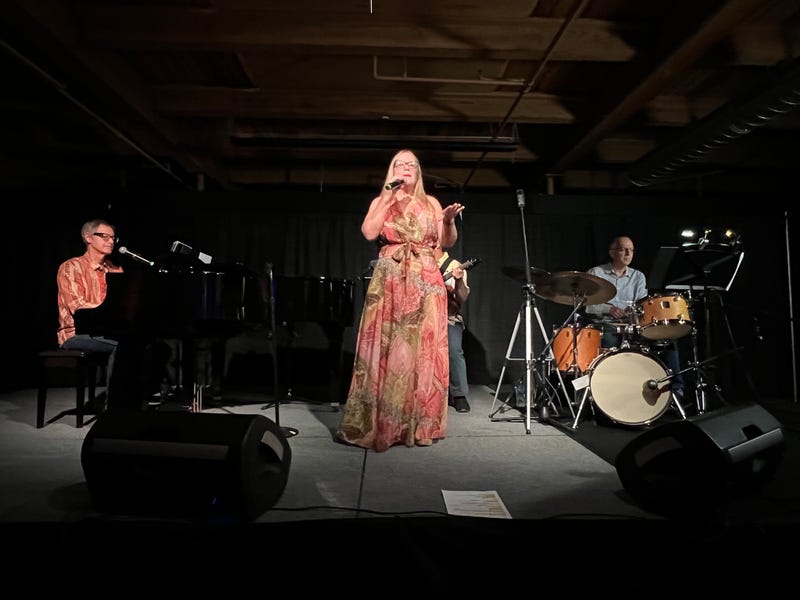
Now, almost five months post surgery, the Burnells do life and music in a whole new way-- full of wonder, hope, a renewed faith, and a new mission.
"As with anything in life, you better grab it while you can, right" ? So this period of time that we've been given here, we don't know how long it will be." said Anne. "Now, we only do what we love. The music that we are doing right now is really stuff we love and want to share with the world."
"I feel lucky. Maybe it was God's way of saying 'stay on Earth a little longer', he laughed. "Music is healing. I've known this my whole life because I've healed people with music and now I was healed through music. I knew my mission for the rest of my life is to play music to make people feel better and to heal them," smiled Mark.
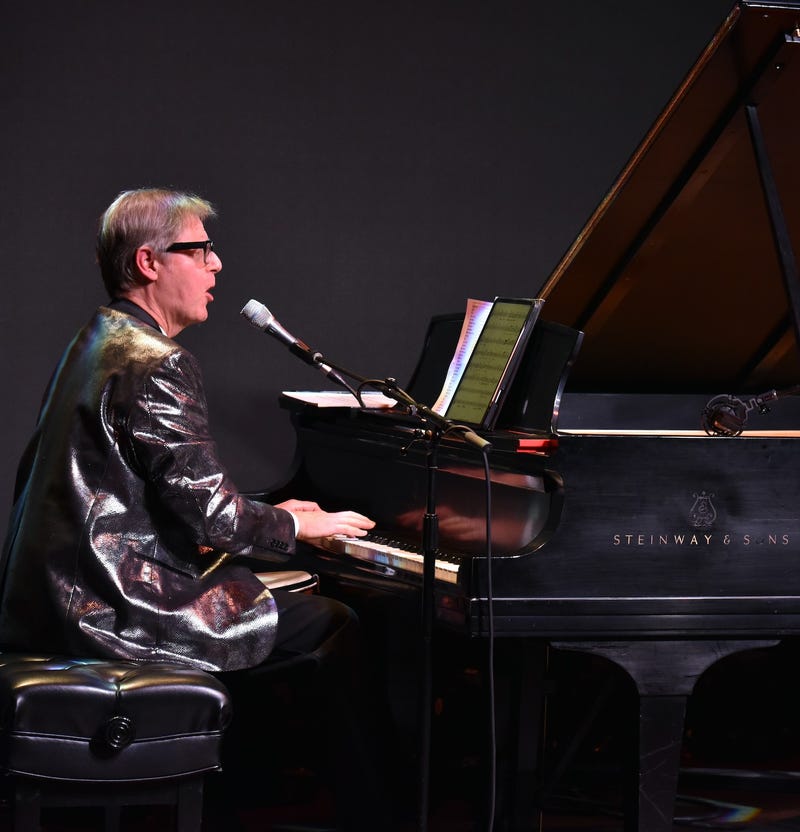
Mark still experiences seizures at times, but not as often. The groundbreaking surgery gave him a second chance at life and the ability to continue doing what he loves most.
"The doctors told me that they had only been doing this brain mapping and radio frequency ablation program for five months so I was a bit of a clinical trial. So I feel extremely lucky and blessed. It's been a gift to be back behind the piano and play with Anne," he said shaking his head in disbelief.
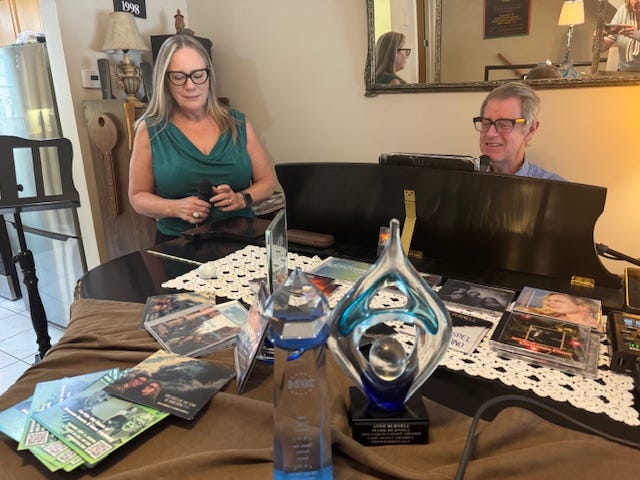
"We decided to share this journey on social media when we were on the way to the airport for his surgery in Florida. He agreed and we made a decision to share it. Maybe it'll be an inspiration to others. Maybe we can help others who are going through the same thing." Anne said. "It's un unseen disability. Epilepsy can be from a lot of different things. It's an invisible disease so if we can help someone through sharing our journey, then we've served a purpose."
Mark is back on stage performing again but he admits it feels a lot different.
"It's more magical now," he smiled.
The Burnells will be performing next at the Epiphany Center for the Arts on September 11th. The Burnell Trio will be performing at the Tortoise Club every Saturday through the end of the year.
